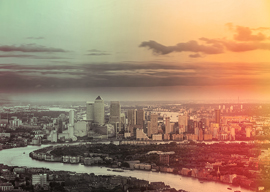
February 03, 2018

London, England
Source: Bigstock
That people may love what they hate—or say that they hate—is illustrated in extreme form by war photographers. If you asked war photographers why they risk their lives to take pictures of the most terrible conflicts (rather than, say, of the beauties of nature), they would say that it is to inform or alert the world in the hope of bringing those conflicts to an end. But this is far from the whole truth, psychologically speaking; and as a person who has indulged in a little civil-war tourism myself, I can avow to the fact that there is nothing like a sense of danger for solving, at least temporarily, whatever little troubles are agitating one’s soul. When there might be an ambush round every corner, the minor fluctuations of one’s emotional state are of little concern.
That is one of the reasons war photographers go from war to war as bees go from flower to flower. In Dubrovnik, in Croatia, a city that knew the travails of war well within living memory, there is a splendid publisher and owner of an exhibition space called War Photo Limited devoted to war photography. It publishes beautifully produced and reasonably priced books of war photographs from around the world by extremely brave and dedicated photographers whose biographies, however, make it perfectly plain that they love what they abominate. Their pictures are sometimes so terrifying that they make us avert our gaze even as we admire their beauty, one of the qualities for which they have been chosen. The passionate integrity of War Photo Limited as an enterprise is obvious, as is the fact that it must infuse those engaged upon it with a sense of purpose, perhaps the greatest gift to any human life. But one wonders—the kind of useless question that so often infects the mind, or at least my mind—whether, if War Photo Limited could end all violent conflict with the wave of a wand, it would do so, and if it did so whether it would do so with a sense of joy or sorrow.
And yet, as appalling and extremely unattractive in many respects as I found the poorer part of modern London, I am not entirely sure that I would wave away its problems with a wand if I could do so, or that I would feel wholly joyful as I did so.